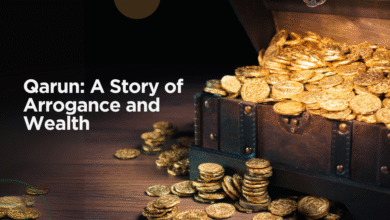Micro, Small, Medium Enterprises
Micro, Small, and Medium Enterprises (MSMEs) are one of the main pillars of Indonesia’s economy, impacting almost every sector of society. Across the nation, MSMEs take various forms, from small vendors and local craftsmen to family-run businesses. These enterprises play a significant role in boosting national economic growth, creating jobs, and helping to improve social welfare through income distribution. Beyond the widely used term “MSME,” there is much to learn about what defines these enterprises, how they are classified, and recent regulatory changes aimed at supporting this sector.
Definition of MSMEs According to the Law
In Indonesia, MSMEs are defined by Law No. 20 of 2008 on Micro, Small, and Medium Enterprises. Generally, MSMEs are described as productive businesses owned by individuals or entities not affiliated with larger corporations. Under this definition, MSMEs are distinguished from large enterprises in terms of ownership, capital, scale, and economic impact.
MSMEs are divided into three main categories based on the number of employees, assets, and annual turnover: micro, small, and medium enterprises. These distinctions help the government identify the most suitable support for each type of business, ranging from credit programs to digital training.
Criteria for MSME Classification in Indonesia
The primary differences between micro, small, and medium enterprises lie in their assets, turnover, and workforce. The specific classifications are as follows:
- Micro Enterprises
- Assets: Less than IDR 50 million
- Turnover: Up to IDR 300 million per year
- Employees: Generally fewer than 5 people
- Examples: Small street vendors, local laundries, and mobile food vendors.
- Small Enterprises
- Assets: IDR 50 million to IDR 500 million
- Turnover: IDR 300 million to IDR 2.5 billion per year
- Employees: Between 5 and 19 people
- Examples: Local cafes, small retail shops, and small automotive repair services.
- Medium Enterprises
- Assets: IDR 500 million to IDR 10 billion
- Turnover: IDR 2.5 billion to IDR 50 billion per year
- Employees: Between 20 and 99 people
- Examples: Small-scale manufacturing, transportation companies, and mid-size food processing businesses.
These classifications guide the government in providing tailored programs, such as access to funding through the People’s Business Credit (KUR), digitalization support, and capacity-building training (PengadaanBarang.co.id, 2021).
Also read:The Urgency of Writing a Good Business Proposal and How to Do It
New Regulations for MSMEs
To help MSMEs adapt to evolving economic dynamics, the Indonesian government has introduced several new policies, including changes in the minimum capital and turnover requirements for each MSME category. A significant development is reflected in Government Regulation No. 7 of 2021 on MSME Facilitation, Protection, and Empowerment. This policy raises the capital and turnover limits for each MSME category to keep up with current economic conditions, allowing more businesses to qualify as MSMEs.
By increasing these limits, the government aims to encourage small and medium businesses to grow and become more competitive without losing access to MSME-specific benefits, such as tax breaks and financial support programs (Kontan.co.id, 2022).
Challenges Faced by MSMEs
Despite their growth, MSMEs encounter several challenges in Indonesia, including:
- Limited Access to Funding: Although programs like KUR and low-interest loans are available, many MSMEs face difficulties in meeting bank requirements for these programs.
- Lack of Technology and Digitalization: In today’s digital age, MSMEs need to leverage technology to stay competitive. However, many small business owners lack the knowledge and resources to utilize digital platforms to expand their market reach.
- Insufficient Skills and Training: Skills in business management, marketing, and financial literacy are often barriers for MSMEs to achieve sustainable growth. While the government offers training programs, there are still many MSMEs that have yet to gain access.
To address these issues, the government has initiated partnerships with various institutions and digital platforms to empower MSMEs. Key initiatives include encouraging MSMEs to go digital by joining online marketplaces, expanding payment options, and offering free training to help improve their business management skills. These measures aim to make it easier for MSMEs to reach broader markets, enhance customer service, and optimize business processes (Kompas.com, 2022).
Also read:Supporting MSMEs as a Foundation of the People’s Economy
Opportunities for MSMEs in the Digital Era
Digital transformation in Indonesia presents immense opportunities for MSMEs to grow. Through e-commerce and social media, MSMEs can expand their reach without incurring high costs for physical expansion. Platforms like Tokopedia, Shopee, and Bukalapak make it easier for MSMEs to connect with consumers throughout Indonesia and even globally.
Digitalization also provides MSMEs with tools to streamline inventory management, speed up transactions, and improve customer service quality. Leveraging technology allows MSMEs to compete more effectively with larger companies. However, to fully seize these opportunities, the government must continue providing digital infrastructure and training to MSMEs across the country.
Conclusion
MSMEs play an essential role in Indonesia’s economic landscape by generating employment, reducing poverty, and promoting income equity. The recent regulatory changes, including increased capital thresholds, along with government support through KUR, training programs, and digitalization initiatives, create a promising environment for MSMEs to thrive.
As a community, we can support MSMEs by buying local products, promoting their businesses, and even starting our own small ventures to contribute to our economy. In an ever-evolving market, MSMEs need collaboration and synergy among communities, government agencies, and other businesses to remain resilient and continue making a positive impact on Indonesia’s economy.
Also read:Scrub Daddy: An Inspirational Story of a Simple Business

References
- Kontan.co.id. (2022). Ambang Batas Modal Usaha UMKM Semakin Tinggi [New Thresholds for MSME Capital Increase]. Retrieved from https://nasional.kontan.co.id/news/ambang-batas-bodal-usaha-umkm-semakin-tinggi
- Kompas.com. (2022). Apa Itu UMKM? Ini Pengertian dan Kriteria UMKM Menurut Undang-Undang [What Are MSMEs? Understanding Criteria According to Indonesian Law]. Retrieved from https://umkm.kompas.com/read/2022/06/01/090000283/apa-itu-umkm-ini-pengertian-dan-kriteria-umkm-menurut-undang-undang
- Kontrakhukum.com. (2022). Peraturan Baru UMKM [New MSME Regulations]. Retrieved from https://kontrakhukum.com/article/peraturan-baru-umkm/
- PengadaanBarang.co.id. (2021). Kriteria UMKM [MSME Criteria]. Retrieved from https://www.pengadaanbarang.co.id/2021/03/kriteria-umkm.html







